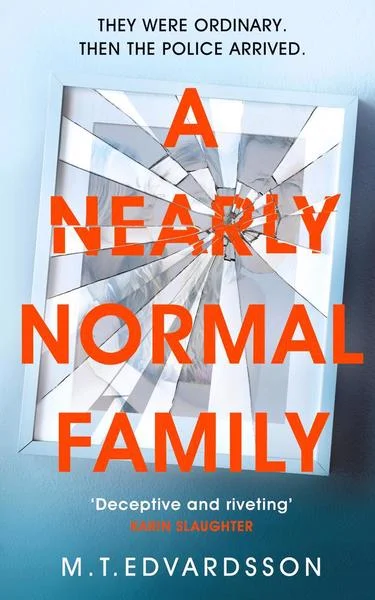I have learnt to sit down and write, anytime and anywhere. It’s an important lesson: I see too many writers who wait for inspiration instead of just sitting down writing. You can always rewrite and improve a story. You can’t do that with a blank page.
Swedish thriller author Mattias Edvardsson began writing in secret, never attending a writing class until his debut novel was published. Now with his fourth novel reaching the top of the charts in Sweden and being released internationally, he talks to us about prioritizing writing and creating your own writing rules.
What made you want to be a writer?
I fell in love with books as a child and started writing stories in school. From the age of five, I dreamt about becoming an author, although I never thought it would be possible to earn a living by writing stories. I never told anyone besides my family and close friends that I wrote and I never attended writing classes, until 2012 when my debut novel was published.
How do you motivate yourself to write?
Most of the time I don’t need any motivation, I just love to write. For years I had to grab every opportunity to write since I worked full-time as a teacher and had small children at home. I have learned to sit down and write, anytime and anywhere. It’s an important lesson: I see too many writers who wait for inspiration instead of just sitting down writing. You can always rewrite and improve a text. You can’t do that with a blank page.
How do you outline your work and begin writing?
I try to create a couple of characters that I can identify with and that I am curious about. Then I put them in a hard place, in some kind of moral dilemma, and write to see where the story takes me. It often takes a few chapters and then the story begins to outline itself in my mind, but sometimes new ideas pop up and the story takes turns that I didn’t see coming.
What has been the highlight of your writing career, to date?
When I wrote A nearly normal family in 2017 my former work had received only modest success in Sweden. My brilliant agent believed in this book and sent out the manuscript to publishers all over the world just prior to the London Bookfair. That very same night she called me after midnight to let me know that Celadon had bought the US and international English rights in a major deal. The next day another 14 different countries bought the manuscript and all in all A nearly normal family will be published in 32 different territories: China, Russia, Lebanon, Germany, France, Brasil and so on. I think it’s fair to say that this book changed my life.
Do you have any advice for aspiring authors?
Never give up. You have to read and write a lot. Practice makes perfect. Find the story that you want to tell and search inside yourself to tell it. I think every good story has a part of the author in the pages. Listen to the advice of others but remember that there are no dos and don'ts in writing.
What do you think is the biggest challenge for new authors?
Reaching out to readers is hard. There are so many books and so little time. I am blessed with an excellent agent and professional publishers who are engaged in spreading my book around the world, but it took me five novels and several years to get there. Sometimes you might think it’s all about good luck, but often there is hard work and many long hours behind a success story. Hang in there and it might happen to you one day. I’m living proof of that.
What struggles did you face in the writing/ publishing process?
My book is written in three parts: every part with its own first-person narrator: the father, the daughter, and the mother. The hardest part was finding three separate voices and telling the story from three different points of views without repeating things. The book was to be published in June 2018 in Sweden and the rights were sold worldwide in March. During these months, before it was published, I found myself in some kind of limbo, worrying that the book would not even be noticed in Sweden. It was a strange thing that it was “an international success story” before it was even published in Sweden. Fortunately, it hit the bestseller lists in Sweden the first week it came out and remained there for the entire summer.
How do you handle rejection as a writer?
All rejections are hard to handle, but I’ve always managed to create distance between the text and myself. It’s not me that is being rejected. Over the years I’ve always been motivated by a strong will to win and I consider it a challenge to write an even better manuscript the next time. They will see … Aside from this, I think I have gained from being able to let go of a manuscript when it’s been rejected and start with a new one instead of rewriting numerous times.
What is the best writing advice you have received?
Stephen King’s On Writing has been essential to me. One of the best pieces of advice I have received is that there are no rules: you have to find the way that works for you.
You can find out more about Mattias via his website and social media channels: Instagram, Twitter and Facebook.










